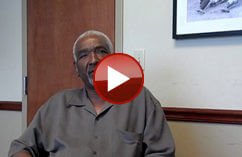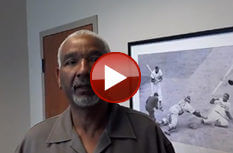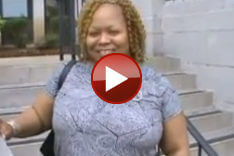Chattanooga Nursing Home Abuse Pretrial Period
Trials require an amount of commitment that could be taxing for many. However, the need and drive to hold a wrongdoer accountable is often worth the strain of litigation. However, the urge someone might feel to rush into litigations may not always be the best of choices. The Chattanooga nursing home abuse pretrial period is a moment that all claim holders should be invested in. Gathering evidence, communicating with attorneys, and possibly strengthening your case could help our odds in court.
What Happens in a Nursing Home Abuse Case Prior to Trial and Who Is Involved
Prior to a nursing home abuse trial, an attorney retained by a victim would normally draft a complaint and serve this complaint to the defendants. Typically, the defendant or defendants would then hire their own legal representative who would file a response to the complaint. Following that, there is a written discovery process that includes interrogatories, requests for documents, and deposition testimonies in which the defendants would take the plaintiff’s depositions.
The plaintiffs would take depositions of the defendant nursing home that may include the providers. It may include certified nursing assistants or nurses, or the director of nursing. Depositions could even include corporate representatives.
Then, the attorney would move on to expert witnesses and doctors who treated the injuries. Finally, there are all kinds of motions that are filed with the court about evidence, procedure, and options of that nature. All routes would eventually lead to a trial if a settlement cannot be reached between the parties involved.
What Claimholders Could Do Prior to Trial
People bringing a nursing home abuse case to trial should stay involved in the process by communicating with the attorney and paying attention to what the attorney asks for. They should provide requested items, help the attorney gather the evidence when asked to help with that, and respond promptly to other requests that are needed. Leading up to the trial, they should stay in contact with the attorney to make sure they know what is going on in the case and to generally ensure good communication.
At some point, the plaintiff and his or her team have to prove that the injuries the patient suffered were the result of failures on the part of the nursing home, exactly what those injuries were, and why they happened. Why did the nursing home fail to do what it should have done to prevent these injuries from happening? While collecting evidence for trial could be done by a nursing home abuse attorney in Chattanooga, this is ultimately a tandem effort. Any evidence that could be provided by victims or their representatives early on could prove helpful in trial later.
Pretrial Actions Attorneys May Take in Chattanooga Nursing Home Abuse Cases
Nursing home abuse lawyers normally gather all of the evidence that they are able to find about the case. Typically, they look for medical records and other useful forms of documentation that pertain to the victim. They may also want corporate records and records involving the defendant. Then, they conduct discovery, in which they ask for information from the defendants.
Following that, attorneys take sworn testimonies of the defendants to use in proving their case. Attorneys would likely then file motions about the trial, consider what evidence might be inadmissible, and attempt to foresee what tactics they think the defendant might try which should not be allowed. Overall, attorneys take numerous unique steps in working a case before trial.
What Victims and Caseholders Should Avoid Prior to a Nursing Home Abuse Trial
Leading up to a nursing home abuse trial, victims and case holders should not talk about the case without their attorneys present. They should not post anything about the case on social media, not even about the defendant. They should not talk about settlement, about money, or anything of that nature before trial. Doing so might jeopardize proceedings in varying degrees.
They should confine all of their communications about the trial to the attorneys or to other family members who are involved in the decision-making process. Everything else should be kept private and quiet.
Possible Benefits and Issues with a Short Pretrial Period
A short pretrial period restricts the amount of information attorneys could gather about the defendant. In turn, this could possibly make it more challenging for attorneys to prove why the defendant failed to do what they needed to or acted in the manner they did. This limited time frame could affect both parties. Conversely, it also has the benefit of getting the case to court quickly, makes the case go faster, and keeps justice swift.
Potential Benefits and Issues with a Long Pretrial Period
Benefits of a long pretrial period could directly affect an attorney’s ability to gather different information to substantiate a defendant’s failures. Additionally, it gives the plaintiff plenty of time to gather all of the evidence attorneys need. The downside is that it could make the plaintiff feel like justice is impossible and never going to arrive. This lengthy process may feel frustrating and sometimes even causes anxiety. Regardless, it is best to sit down and talk with an experienced attorney in Chattanooga about the pros and cons to lengthy or short trial periods.
Reach out to a Legal Professional Today
Depending on the nuances of your case, the pretrial period could come with it a rushed or drawn out timeline. Despite this, the Chattanooga nursing home abuse pretrial period comes with it options for attorneys, victims, and representatives of victims to explore. These options include the choice to be communicative in the evidence gathered and the subsequent possibility to strengthen a case against wrongdoers. However, the pretrial period could be made easier with your worries assuaged with the help of an experienced attorney.
We should not let abusers’ actions go unaccounted for. Contact an attorney today to review your case options.














